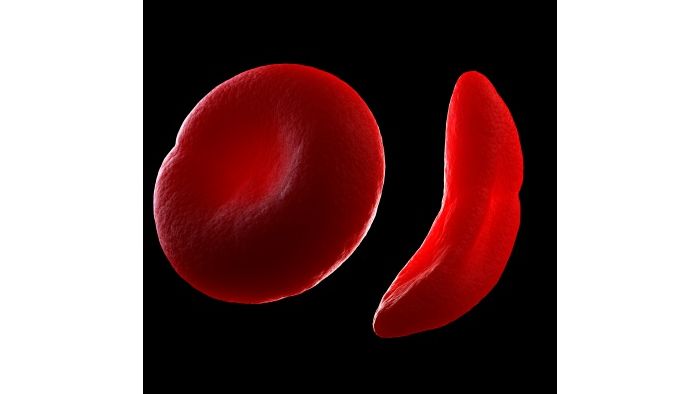SHANGHAI, CHINA -- NVIDIA today announced that the OpenACC programming standard has enabled Chinese researchers to dramatically accelerate the DNADist genomics application,1 which is used in the early stages of development of treatments for genetic conditions, such as Down syndrome, hemophilia, cystic fibrosis, and sickle-cell disease.
Using the CAPS enterprise OpenACC compiler, Shanghai Jia Tong University researchers accelerated the DNADist application by 16 times on an NVIDIA® Tesla® GPU-based system by adding just four simple hints -- known as "directives" -- to the application code.
DNADist, a distance-matrix application for studying the genetic relationships between various species over evolutionary history, enables researchers to extract information from sequenced DNA data by reading nucleotide sequences, which may potentially lead to a greater understanding of the causes of and treatments for pervasive genetic diseases. Accelerating the DNADist application allows researchers to study a significantly larger range of input data and obtain actionable information earlier in the disease treatment research process.
A programming standard for parallel computing using directives, OpenACC is designed to enable millions of researchers around the world to easily take advantage of the transformative power of GPU computing. It provides the easiest way for users, with or without extensive parallel programming expertise, to accelerate their research in a matter of hours using familiar programming models.
Roche Impressed with OpenACC, Power of GPU Acceleration
By quickly delivering game-changing application acceleration with minimal effort, OpenACC provides world-leading pharmaceutical companies like Roche with the ability to research, identify and develop more effective drugs faster and more cost-effectively.
"I am astonished at how quickly and easily OpenACC unlocked the power of GPU acceleration for DNADist, which is one of our most critical applications," said Steve Pan, project director, Roche Pharma Global Informatics. "The potential impact of GPUs is priceless because getting our products to market faster, even one day earlier, will save more lives."
"Extracting meaningful information from the vast collection of available DNA sequencing data requires ever-increasing amounts of computational power," said Sumit Gupta, senior director of the Tesla business at NVIDIA. "OpenACC enables researchers to quickly and easily leverage the enormous performance of GPU accelerators to analyze mountains of genomics data. This dramatically reduces the time to study biological systems, and potentially leads to the development of more effective next-generation medicines."
A large and growing number of researchers and engineers are using OpenACC-supported compilers and hybrid CPU/GPU computing systems to accelerate all types of applications, including CAD/CAM, image processing, materials science, molecular dynamics, quantum chemistry, and many other applications. In many cases, users are reporting that they have achieved as much as 5-10X or faster levels of acceleration in as little as a few hours of work.
Webinar to Showcase OpenACC, DNADist - Sept. 6, 2012
CAPS enterprise will deliver a free public webinar on Thursday, Sept. 6, 2012, to educate participants about OpenACC use cases and best practices, and provide more detail on the acceleration of the DNADist application. To learn more or to register, visit https://www2.gotomeeting.com/register/668751466.
About NVIDIA Tesla GPUs
NVIDIA Tesla GPUs are massively parallel accelerators based on the NVIDIA CUDA® parallel computing platform and programming model. Tesla GPUs are designed from the ground up for power-efficient, high performance computing, computational science and supercomputing, delivering dramatically higher application acceleration for a range of scientific and commercial applications than a CPU-only approach.
More information about NVIDIA Tesla GPUs is available at the Tesla website. To learn more about CUDA or download the latest version, visit the CUDA website. More NVIDIA news, company and product information, videos, images and other information is available at the NVIDIA newsroom. You can also follow us on Twitter (@NVIDIATesla).
About NVIDIA
NVIDIA (
1) DNADist is part of the Phylip (PHYLogeny Inference Package) open source package of programs used by academicians in the field of biosciences, primarily in phylogeny. Source: http://en.wikipedia.org/wiki/PHYLIP
Certain statements in this press release including, but not limited to, statements as to the impact and benefits of NVIDIA Tesla GPUs and the effects of the company's patents on modern computing are forward-looking statements that are subject to risks and uncertainties that could cause results to be materially different than expectations. Important factors that could cause actual results to differ materially include: global economic conditions; our reliance on third parties to manufacture, assemble, package and test our products; the impact of technological development and competition; development of new products and technologies or enhancements to our existing product and technologies; market acceptance of our products or our partners products; design, manufacturing or software defects; changes in consumer preferences or demands; changes in industry standards and interfaces; unexpected loss of performance of our products or technologies when integrated into systems; as well as other factors detailed from time to time in the reports NVIDIA files with the Securities and Exchange Commission, or SEC, including its Form 10-Q for the fiscal period ended April 29, 2012. Copies of reports filed with the SEC are posted on the company's website and are available from NVIDIA without charge. These forward-looking statements are not guarantees of future performance and speak only as of the date hereof, and, except as required by law, NVIDIA disclaims any obligation to update these forward-looking statements to reflect future events or circumstances.
© 2012 NVIDIA Corporation. All rights reserved. NVIDIA, the NVIDIA logo, CUDA and Tesla are trademarks and/or registered trademarks of NVIDIA Corporation in the U.S. and other countries. Other company and product names may be trademarks of the respective companies with which they are associated. Features, pricing, availability, and specifications are subject to change without notice.
